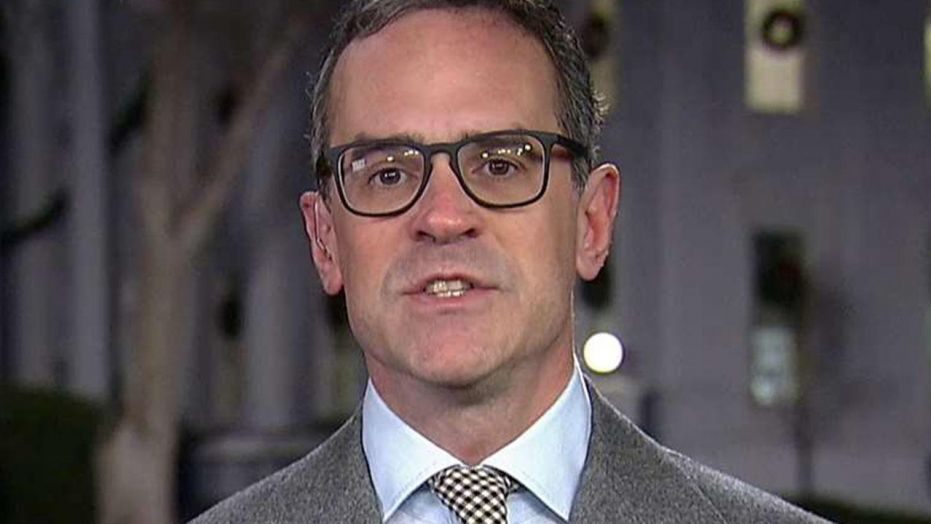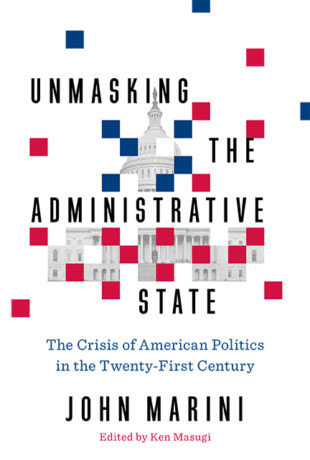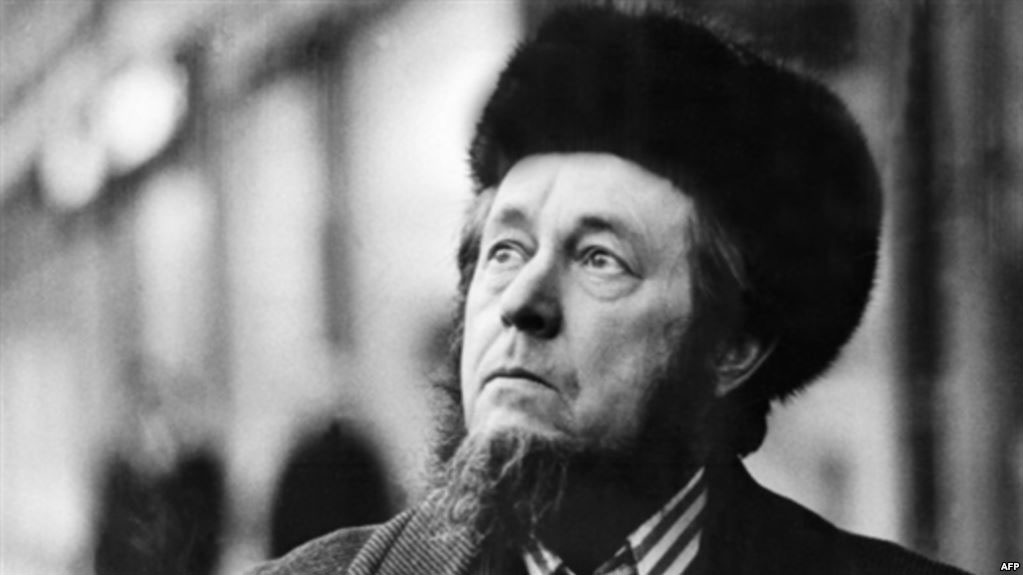
“Nativist.” “Liar.” “Xenophobe.” “Disgraceful.” “Pro-Dred Scott.” “Offensive Dumpster Fire.” “Disastrous.” “Deeply-troubling.” These were just some of the epithets our ruling class used to disparage Michael Anton for arguing that birthright citizenship—our current practice of granting automatic citizenship to any child born on American soil—violates the 14th Amendment to the U.S. Constitution.
“[W]e need to return to the old ways that served Western civilization and America well for so long. Michael Anton’s book is an indispensable guide for beginning to regain what we have lost.”
The least surprising aspect of the hysterical reactions to Anton’s reasonable (and, in my view, correct) argument is that the above quotes all came from those ostensibly on the Right.
David Marcus of The Federalist wrote that Anton’s arguments evinced a “fearful bunker mentality” and a “pathetic fear of difference.” Mirroring Marcus’s flights to identity politics, rampant emotivism, and streams of non sequiturs, The Federalist’s Robert Tracinksi called Anton “intellectually and morally bankrupt” and darkly surmised he wants a Republican Party “that is against non-white people.” John Podhoretz, the editor of the flagship neoconservative magazine Commentary who regularly mistakes his bilious drivel for sharp comedy, responded that Anton’s citizenship should be revoked.
These reactions from the Right are just the latest evidence that, over the past few decades, conservative elites have been co-opted by the Left. They have accepted wholesale the false gospels of identity politics, political correctness, multiculturalism, globalism, open borders, Rawlsian liberalism, and social justice theory. As Anton explained in his explosive “The Flight 93 Election” essay, conservatives have acted the part of the “Washington Generals,” whose sole job was to “show up and lose” on issue after issue, decade after decade. Cowering in fear of being labeled as racist, they allowed the Left to act as an acid on the body politic, corroding nearly every sinew holding it together.
Like Lt. Colonel Nicholson in The Bridge on the River Kwai, many rightist elites—libertarian think-tankers, second-generation neoconservatives, corporate CEOs, etc.—joined their former enemies. According to Anton, these fifth columnists help “the Davoisie oligarchy rationalize open borders, lower wages, outsourcing, deindustrialization, trade giveaways, and endless, pointless, winless war.” But unlike Nicholson, they will never experience the shocking moment of realization that they have been helping the enemy all along; instead, they have become him, fully and completely.
Thus rather than conceiving our politics in terms of Left versus Right, a more accurate dichotomy that captures the current political alignment is the ruling class versus the American people. Or globalists versus sovereigntists. Or better still, oligarchs versus republicans.
As Anton defines it,
The fundamental choice we face in our time is whether to maintain the consensus in favor of self-loathing and self-destruction or return to life and the conditions of life: the rule of law, responsible freedom, confidence in our civilization, patriotism, and concern for the common good.
In After the Flight 93 Election: The Vote that Saved America and What We Still Have to Lose (Encounter Books), Anton sketches out this choice with his typical wit and clarity. An acclaimed essayist and speechwriter with diverse interests ranging from bespoke men’s clothing to culinary arts, Anton recently served in the Trump administration as Deputy Assistant to the President for Strategic Communications. Currently, he is a lecturer in politics and research fellow at Hillsdale College.
Anton’s new book is made up of an original essay, “Pre-Statement on Flight 93,” and two previously published essays, the famous “The Flight 93 Election” and its follow up, “Restatement on Flight 93.” Under the pseudonym of Publius Decius Mus (an homage to three men in Roman history who made significant personal sacrifices for their country), Anton published the latter two essays in early September of 2016.
In “The Flight 93 Election,” Anton made a political case for Donald Trump, citing his policies on immigration, trade, and war; skewered the ruling class oligarchy; and noted the failures of elite movement conservatives to conserve anything other than their jobs. The essay served as a loud trumpet blast to rouse Americans to the “urgency of the moment and the stakes of the election…for the country.” “The election of 2016,” Anton argued, “is a test—in my view, the final test—of whether there is any virtù left in what used to be the core of the American nation.”
Conservative intellectual elites unleashed a furious response to Anton’s noticing reality. The spiritedness they lacked when it came to conserving the flesh and blood people of America suddenly emerged when their own dismal records were laid bare. In “Restatement on Flight 93,” Anton answered these various critics, whose criticisms ranged the gamut from petty to utterly irrational. The reason for the conservatives’ fury was obvious to Anton: “that a Trump victory will finally make their irrelevance undeniable.” Judging from the shuttering of The Weekly Standard and the overall implosion of the Never Trump movement since the election, he has been vindicated.
In his new essay, Anton concluded that what is most necessary is not a furious defense of Trump but instead a “positive argument” for the reasonableness of the American tradition and an “awareness of the specific ways it is threatened,” culminating in the existential threat currently posed by post-60s liberalism. The “Pre-Statement on Flight 93” serves as the “ontological priority” of Anton’s pro-Trump argument.
Anton builds his case upon the distinctive qualities of man’s nature—his speech, potential for reason, and sociability—which set him apart from other animals and makes political life possible. But with man’s positive qualities come negative ones, which all too easily overwhelm him. Owing to man’s propensity to injure others and take what they made by the sweat of their own brows, a government under law is necessary to restrain his basest instincts for the protection of “mere life.” Yet to attain the “good life,” or the chance of perfecting man’s natural gifts, government must promote the good of the entire community. Anton writes that healthy political societies “must be concerned with the flourishing of all higher aspects of human nature, which are undermined by radical individualism and private hedonism.”
For the American founders, republican government demanded a rare combination of “traditions, customs, laws, talents, education, religious practices, and private habits” among the people. As George Washington once stated, “Virtue or morality is a necessary spring of popular government.” The founders knew through a deep study of Greek and Roman history that such governments were extremely rare and the people’s character—the matter—must match the form. Anton correctly notes, “It took well over a century of quasi self-rule via colonial legislatures, plus the crucibles of the French and Indian War and the Revolutionary War, to make us ready for it.”
Government also had “a role to play in promoting republican virtue through education and support for the integrity and health of the family” and “respecting the role of religion and religious institutions” in both private and public life. In addition, learned men such as John Adams, Alexander Hamilton, and James Madison instituted the principles of “representative republicanism, federalism, the separation of powers, and especially limited government” (not necessarily small government) in the Constitution as a hedge against man’s naturally unrestrained will and for his flourishing. Nonetheless, they knew that institutional bulwarks alone could never make barbarians fit for free government.
This wisdom, then, should inform how we bring others into the country—or whether we bring them into the country at all. A republic must, Anton argues, “choose carefully whom and how many [immigrants] to accept,” “impel assimilation,” be honest about the success of such assimilation, and always protect its own citizens first above any other considerations. “To admit foreigners indiscriminately to the rights of citizens, the moment they put foot in our country,” Alexander Hamilton noted, “…would be nothing less, than to admit the Grecian Horse into the Citadel of our Liberty and Sovereignty.”
The founders’ conception of republican government also has important implications for U.S. foreign policy. As the Declaration of Independence states, nations are entitled to an “equal and separate station”—meaning that nations need to treat other nations with respect and leave them unmolested absent war. This means that the neoconservative project of exporting democracy and “human rights” abroad is a clear breach of American tradition and principles because 1) it violates other nations’ sovereignty and 2) it is likely to fail since most other peoples are unlikely to posses the requisite virtues and mores republican government requires.
Though various internal threats against the nation have arisen in American history, none have been more dangerous than post-60’s liberalism. In Anton’s view, this Frankenstein was created by sewing together John Rawls’ liberalism—which concerns the redistribution of “power, wealth, and honors” from the advantaged to the disadvantaged—with social justice ideology, which adds an historical element and the insidious concept of group rights.
From this perspective, American history is nothing but a sordid tale of oppression. Both overtly and covertly, oppresser groups use institutions to persecute disadvantaged groups and to keep them from seats of power. Clothed in language dripping with moralism, this idea of justice requires “preferential treatment for every member of a disadvantaged group, regardless of current socioeconomic status” that will “go on forever.” Apparently, the debt built up by centuries of injustices can never be fully discharged.
Of course, this ideology is incompatible with the very idea of a nation based on securing the common good. Securing the “particular good” of oppressed groups over others creates faction, the chief danger to republican government according to James Madison; ex uno plures (out of one, many) rather than e pluribus unum (out of many, one). Anton convincingly argues that post-60s liberalism institutes a false “aristocracy,” a “caste system” built neither on virtue nor wisdom but pure will alone. Debate and discussion are dispensed with. Bullying, doxxing, gaslighting, throwing Molotov cocktails, shouting down anyone who speaks up against this lunacy—these are the tactics these ideologues use to achieve their radical objectives. The effectual truth of their aims is the end of politics, both as a reality and an idea. Submit, our overlords tell us, or else.
As many of us recognize, this ideology has caused “spiritual sickness” and “existential despair” to ferment among the populace. It has contributed to high divorce rates, the rise of perpetual singleness (estimates are that 25% of millennials won’t be married by their mid-40s to 50s), crashing birth rates, declining life expectancy, soaring opioid deaths, stagnating wages, and stratospheric rates of illegitimacy (among blacks it is a staggering 70%).
To have any hope of saving the patient, we need to recover a politics that has people as its central focus. This is why Anton vehemently rejects our current form of market capitalism that is unmoored from moral constraints. “The sole or highest purpose of society,” Anton writes, “is therefore not the satisfaction of primal wants and needs.” Conservatives have lost sight of the oikos, which is evidenced by their swift denunciations of Tucker Carlson’s January monologue explaining how Americans are being exploited by globalist elites.
A healthier conservatism would be alarmed at growing inequality between classes and the financialization of nearly every aspect of American life. It should want to share wealth more broadly rather than making sure it is concentrated among our tech overlords and billionaire class—the same groups who hate everything about the non-credentialed yokels who cling to their Bibles and guns. And it should want to make sure that families can thrive on a single wage.
As the second part of the book’s subtitle makes clear, Anton understands that we still have everything to lose as a country. For unless we implement and maintain the right policies, even a successful Trump presidency could only delay disaster. Considering Trump’s failures on immigration and obsequiousness to the mindless interventionist foreign policy touted by the generals and the military bureaucracy, such success looks to be increasingly doubtful. In any event, any genuine, long-term recovery must come from Americans themselves.
With Donald Trump’s election in 2016, the passengers who stormed the plane’s cockpit were able to wrest control, pulling its yoke back and averting imminent disaster. But the threat hasn’t subsided. Danger looms all around us. The plane is at low altitude with warning lights blazing; its nose is dipping. What will we do?
Certainly, returning to the deluded, moralistic, baby boomer conservatism that conserved nothing of the actual substance of America and its citizens is out of the question. Instead, we need to return to the old ways that served Western civilization and America well for so long. Michael Anton’s book is an indispensable guide for beginning to regain what we have lost.

